Many students who began their Tokyo Tech journeys after the outbreak of COVID-19 have spent the majority of their university life in online classes and lectures. Recently, Student Life Coaches at the Student Support Center’s Student Success Support Section have been working in collaboration with the Tokyo Tech Alumni Association to arrange student unit reunions where fellow learners can get to know each other face to face.
Between November 24, 2021 and January 26, 2022, fifteen student unit reunions were organized at Hisao & Hiroko Taki Plaza (Taki Plaza) to facilitate in-person meetings between 2nd-year students. The planning and implementation of these sessions was headed by Tokyo Tech’s Peer Life Coaches, volunteer students affiliated with the Student Success Support Section.
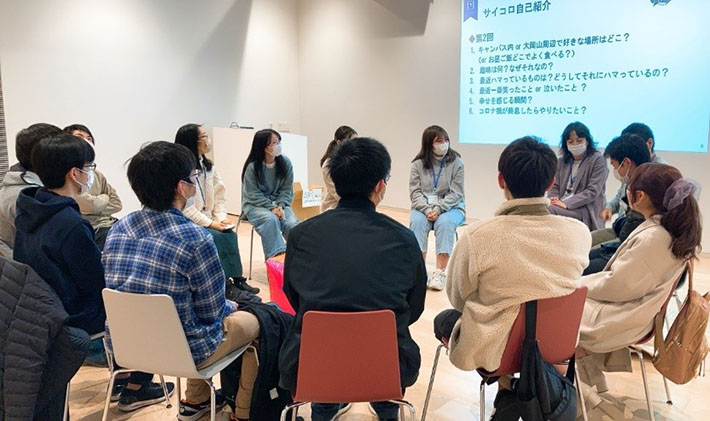
Unit students introducing themselves in person for the first time
Student units encourage interdisciplinary exchanges from first year
The student unit is an important building block of the bachelor’s degree program at Tokyo Tech. When students begin their first year of studies, they join student units that each consist of approximately 15 students from different Tokyo Tech Schools. Students then take a number of required courses in the first year and the Liberal Arts Final Report course in the third year together with other members of their unit, encouraging them to form and engage in interdisciplinary communities throughout their bachelor-level studies. At the start of each academic year, approximately 80 new student units are formed.
Particularly before the emergence of COVID-19, new students not only took a variety of classes and lectures with their unit members, but also deepened friendships and interdisciplinary exchanges before and after these study sessions. They actively went out to share meals and enjoy themselves with other students from a broad range of backgrounds.
As students move to their second year, they begin to focus on their specializations and are affiliated with specific Departments, which means that opportunities to interact with students from other Schools and Departments often decrease. The connections created between students in the same unit form important interdisciplinary bonds that often last well past graduation.
In academic year 2020, the spread of the novel coronavirus forced all classes online in the spring semester. The Student Life Coaches orientation for newly enrolled bachelor’s degree students, held every spring and attended by students as units, was also moved online, greatly reducing the chance for interaction and formation of new friendships. While some in-person classes resumed in the fall semester, many bachelor’s degree students who enrolled in 2020 had not met their fellow unit members face to face until recently.
Student unit reunions bring online classmates together
The unit reunions held between November 2021 and January 2022 were specifically aimed at current 2nd-year students who joined the Institute in the spring of 2020, allowing them to “reunite” for the first time. The reunions were held a total of 15 times, with students from up to six units joining each session. These meetings also included one session held in English for international students.
During the two-month period, a total of 47 second-year students participated in the sessions. At each reunion, the students joined a Peer Life Coach acting as a facilitator to introduce themselves and discuss various topics related to university life. Students from the same unit or other participating units quickly found common ground and actively talked about various topics. The senior Peer Life Coaches also offered guidance, sharing advice on choosing the right lab based on individual interests and creating a lively yet calm atmosphere of exchange.
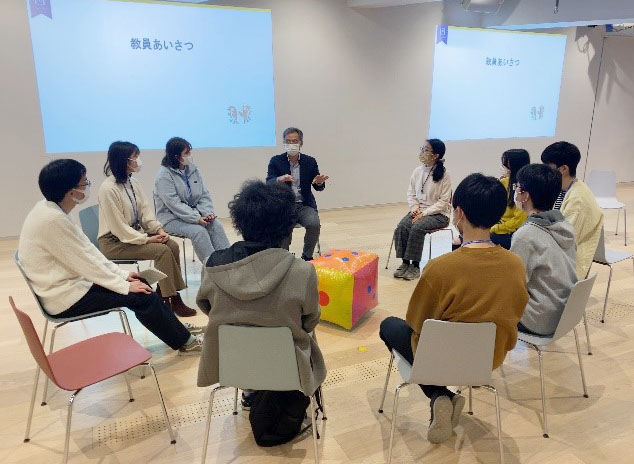
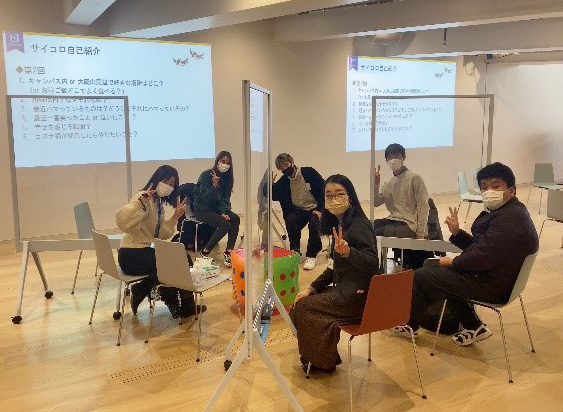
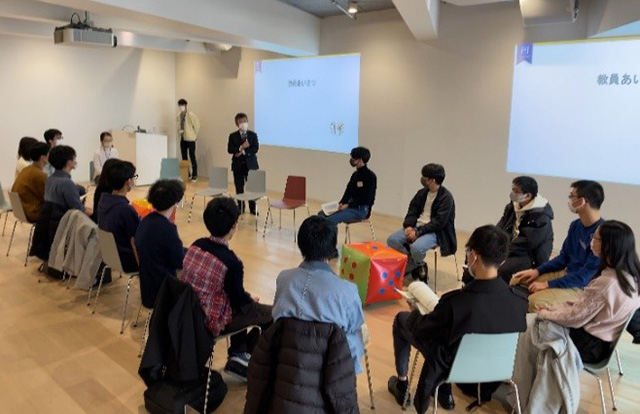
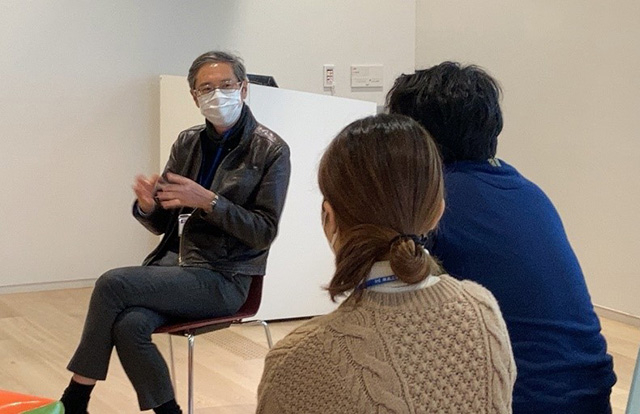
Second-year students and faculty members freely discussing various current issues regarding campus life
In addition to a Peer Life Coach, faculty members affiliated with the Student Support Center and one faculty member from a Tokyo Tech School who represented the Student Support Center committee also joined each session. These participants shared valuable information, both as educators and members of the Tokyo Tech community, about learning during the COVID-19 pandemic and life in general at the Institute.
During the sessions, discussion topics included reasons for joining Tokyo Tech, the most enjoyable classes so far, favorite places on campus, and personal post-COVID-19 goals. Some students also touched on more Tokyo Tech-like topics such as good restaurants in the Ookayama area and so-called “power spots” on campus.
After each reunion, each participant received a coffee voucher, courtesy of the alumni association, which could be redeemed at the cafe in Taki Plaza. As the students enjoyed their coffee, they could be seen continuing their exchanges with fellow participants and other students making use of the student hub.
Comments from student participants
- It was the first time for many of us to meet in person, and at times it was slightly emotional. It was pleasant to speak to people in the same unit, and the facilitator did a great job in keeping the conversation flowing and avoiding any uncomfortable silences. Thank you very much!
- I very much enjoyed talking face to face with students in the same academic year. I think we were all a bit nervous at first, but we were able to open up and enjoy the friendly discussions.
Despite the constant challenges posed by COVID-19, the Student Support Center and the broader Tokyo Tech community continue to seek new approaches that allow students to flourish during their time at the Institute.







